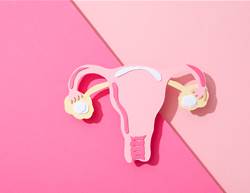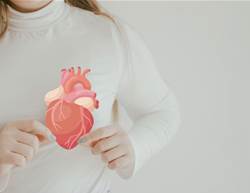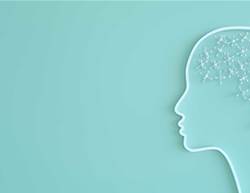1. Hormones are everywhere in your body. Even right now, there are dozens of glands pumping them out into your blood. These compounds help you to breathe, prompt you to eat (and stop eating), heal wounds and enable you to get pregnant. And, despite what you’ve heard, no hormone is inherently good or bad: The stress hormone, cortisol, helps you maintain normal blood pressure and circulation, but can also lead to ‘stress eating’; oestrogen protects bones and keeps skin moist, but can also trigger perimenopausal hot flushes. Endocrinologist Dr Deena Adimoolam says these chemicals constantly chat with one another and other compounds in the body to stay in balance.
2. Did you know that a tiny shift in your hormones can have big consequences? “As with the oil in your car, you want the right amount of each hormone,” says endocrinologist Dr Victor Bernet. It’s that precise. For instance, if thyroid-stimulating hormone (TSH) gets out of range, even by milliunits, memory, body temperature and other functions can be altered.
3. Good news for perimenopausal women: A new non-hormonal treatment for hot flushes may
be on the way. Women suffering from night sweats and hot flushes, because of oestrogen fluctuations, are typically put on hormone therapy or an antidepressant. For those after an alternative, gynaecologist Dr Nanette Santoro says herbs have proven to be ineffective, but fortunately, a new approach shows promise. Known as a neurokinin-3 receptor (or NK-3) blocker, early studies show the drug prevents the brain process that triggers hot flushes. If all goes well, a daily pill could be available in a few years.
4. Body weight can affect hormones in a major way. So can sleep. Want proof? One UK study found that 90 per cent of participants with type 2 diabetes who lost 10 per cent of their weight were able to go into remission. No extreme diets were involved, either: The weight loss took place over five years. When it comes to sleep, endocrinologist Dr Pascual De Santis says getting regular, quality shut-eye can keep the pituitary gland (known as the master gland, thanks to its influence on others), finely tuned.
5. If your orgasms aren’t electric, your birth control could be the culprit. A lesser-known side effect of the Pill is that it can lower the brain’s level of oxytocin, also known as the bonding hormone, according to a recent review of oral contraceptives by Spanish researchers. Higher oxytocin levels are thought to boost the intensity of orgasms. Other bummers discovered? When you have lower oxytocin, your partner’s face may seem less attractive and feelings of jealousy could rev up.
6. Your bone health is in the hands of a hormone you may never have heard of: the parathyroid, whose job it is to track calcium supply. When too much of the hormone circulates - often from a benign tumour on the parathyroid gland - your blood circulation rises as the body steals calcium from the bones, which can lead to osteoporosis. It's an issue that "women are more predisposed to", says Dr Bernet, noting that surgery is a common fix.
7. An estimated 14 per cent of older Aussies have a thyroid disorder – such as hypothyroidism (caused by a rise in thyroid-stimulating hormone aka TSH) or hyperthyroidism (marked by a TSH drop) – but experts don’t agree on when to start medication. Symptoms of hypothyroidism include weight gain, exhaustion and constipation. Some doctors prefer to wait until TSH is over 10 to treat it. Others start earlier, but a panel of experts recently advised against treating subclinical hypothyroidism, saying there’s no evidence that.
8. Testosterone isn’t just important for men. This male sex hormone, produced in tiny amounts by the ovaries and adrenal glands, may also help keep your libido up after levels fall naturally in your 30s, notes Dr Santoro. However, while testosterone supplementation can help some women with low sex drive, it’s unclear whether long-term use is safe. A more common problem is producing too much testosterone: Polycystic ovary syndrome (PCOS) affects up to 10 per cent of women of childbearing age and is the biggest cause of infertility.
9. Contaminants can easily put hormones out of whack. Chemicals in food, water, personal-care products and the environment can enter your body and mimic or block hormones, or otherwise keep them from doing their jobs. Substances that can affect the production of hormones include well-known troublemakers found in plastics, such as BPA and phthalates, and have been linked to everything from endometriosis, learning disabilities and some cancers, though experts say more research is needed.“To be on the safe side, avoid pesticides, favour glass and steel food containers over plastic, and eat whole foods without colourings or additives,” suggests Dr Adimoolam.
10. In what will come as welcome news to anyone who has tried intermittent fasting, but weren’t fans of the trend, a new Australian study shows that sticking to regular meals could be a win for immunity. The researchers found that eating produces a hormone called vasoactive intestinal peptide (VIP), which kick- starts protective mechanisms in the gut that fight pathogens and so-called bad bacteria. Interestingly, VIP tends to spike when your body is anticipating mealtimes, too.










